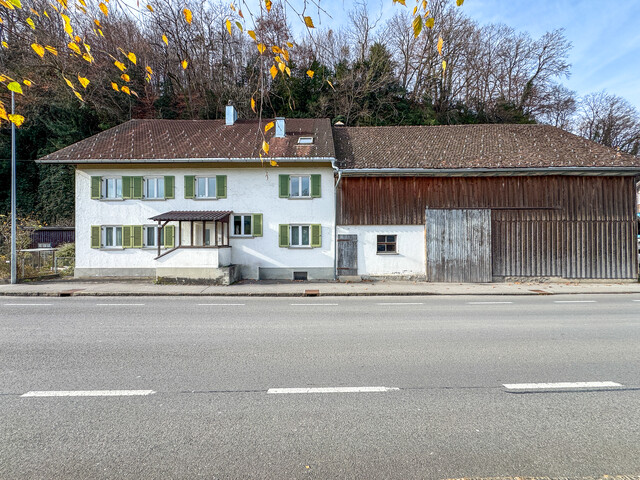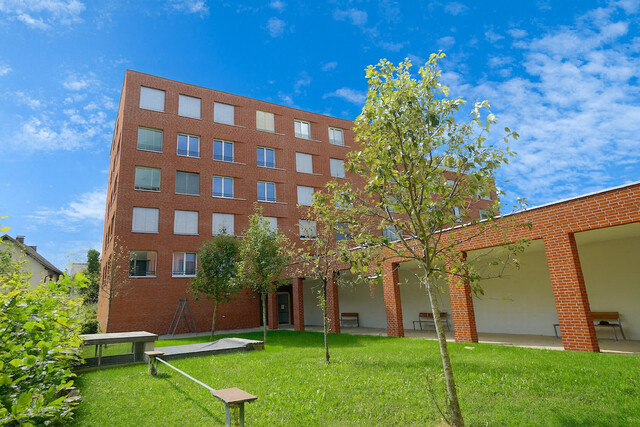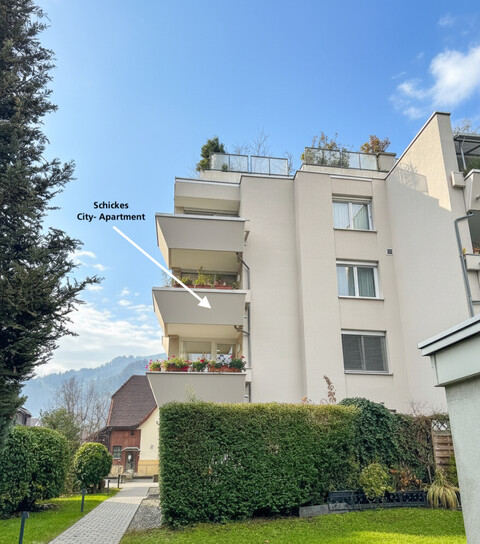Marterbauer's First Budget Speech: "Austria Can, If It Wants"

Savings are never easy, but achievable with goodwill: "Austria can, if it wants to," said the minister in front of the fully assembled government team in the National Council and prominent visitors like Federal President Alexander Van der Bellen. Marterbauer criticized the previous government.
A finding is inevitable in view of the facts: "Since 2022, Austria has performed poorly compared to other EU countries." Marterbauer referred in his 78-minute speech to the sluggish economy coupled with high inflation in recent years. Additionally, climate policy has been characterized by costly and often insufficiently targeted subsidies. Tax cuts, which may have been partly sensible, lacked any counter-financing.
First Budget Speech by Markus Marterbauer
Now, the situation is one of a high deficit, which Marterbauer intends to reduce: "We are not consolidating the budget for fun and games." He prefers to invest the money in education, health, and climate protection rather than paying billions in interest. Without countermeasures, the debt would dangerously approach 100 percent of GDP in a few years.
The starting point calls for the cooperation of all constructive forces to overcome the problems, said the minister, who invited not only states and municipalities but also social partners and the opposition to cooperate. Marterbauer sees the government itself on a good path. The spirit of compromise and cooperation shapes the entire course of economic and budget policy: "If we preserve this spirit, this course will be successful." The principles of fact-based decision-making, compromise, and pragmatic solutions to the existing problems are firmly anchored in this federal government.
No Fear of Deficit Procedure at All
Marterbauer assumes that the EU will initiate a deficit procedure against Austria, which does not overly concern him: "I have no fear of this procedure at all." It even strengthens the role of the Ministry of Finance in the consolidation process. Anyone who claims that the procedure would place Austria under Brussels' tutelage has either not dealt with EU rules or is spreading false claims against better knowledge.
The consolidation process will not be easy anyway: "There will undoubtedly be a few tough years. Everyone will feel the budget consolidation," said Marterbauer. Unpopular and unpleasant decisions had to be made. Even sensible departmental expenditures had to be cut.
Regarding the suspended valorization of social and family benefits, Marterbauer emphasized that at least they would not be cut, and in return, the kindergarten offer would be expanded. The climate ticket, meanwhile, remains a very good offer even at a higher price. Savings are being made everywhere, even in small ways. For example, 100,000 euros less in costs arise from the budget no longer being printed.
The Finance Minister often emphasized that those who have more should also contribute more. Marterbauer highlighted the bank levy and the contribution of the energy sector. Additionally, everyone should feel that things are fair. Therefore, combating fraud is a particular concern for the Finance Minister.
For Marterbauer, it is clear that the actual retirement age must be raised "quickly" if we want to ensure the financial viability of the social pension system. Active measures also include keeping older people in the workforce. Marterbauer named the increased resources for language support in schools as a "particularly necessary and promising" focus.
Protests in Front of the Vienna Parliament
Of course, even within their own ranks, the budget plans caused protests in front of the High House. For example, a small group of Socialist Youth demonstrated with an oversized "savings pencil" against some measures, such as in the education and climate protection sectors. NGOs like Attac also made themselves heard using a megaphone.
Criticism, Praise, and Green Sympathy for Marterbauer
The presented double budget is causing mixed reactions. Green Party leader Werner Kogler viewed Finance Minister Markus Marterbauer's (SPÖ) budget speech with ironic sympathy. "He is a decent guy," he said on the sidelines of the National Council meeting - "he just suffers from having to defend a budget that Black-Blue sent to Brussels." There was no sympathy from the FPÖ, however, as they detected clichés and obfuscation.
Kogler was far less lenient about the savings measures themselves. Savings are being made in the wrong places. Once again, Kogler assessed the cuts as "socially unjust, at times economically hostile, and environmentally damaging." "Completely perverse" is also the fact that heavy traffic is being further fueled with additional privileges. SPÖ chairman and Vice-Chancellor Andreas Babler stood by Marterbauer during his budget speech. It was his "very competent" and "excellent" speech, he said afterward. Social Minister Korinna Schumann also spoke of a "great speech" that realistically described the budget situation.
The Freedom Party MP Susanne Fürst used her statement on the topic "EU Report of the Chancellor" - the actual budget debate will only take place on Wednesday - to divert to Marterbauer. She detected "a long speech with many empty clichés" and a "concealment of the true causes." Behind the transparency invoked by the government, there are cuts in families, pensioners, and high achievers. FPÖ leader Herbert Kickl was even more explicit. In a statement, he described the budget report as a "document of failure." He spoke of a "raid on the working population" instead of an expenditure-side budget consolidation.
Marterbauer's Budget Speech: ÖVP and NEOS Defend Measures
Representatives of the other two governing parties also defended the savings measures. Economics Minister Wolfgang Hattmannsdorfer (ÖVP) said: "The consolidation affects everyone. Everyone is making a contribution." Chancellor Christian Stocker (ÖVP) stated in a release that it is a "first step to sustainably put the state budget back on solid and resilient footing." The government is doing this "out of economic sense and fiscal responsibility." The focus is on spending discipline and long-term structural reforms, emphasized the People's Party. This will create room for future investments.
One bids farewell "to the subsidy watering can" and invests specifically where "it really makes sense and where it is about future investments," said the responsible Finance State Secretary Barbara Eibinger-Miedl (ÖVP). In a background discussion the evening before, Eibinger-Miedl spoke of a "very big milestone" and highlighted the good cooperation with Finance Minister Markus Marterbauer (SPÖ). NEOS club chairman Yannick Shetty, on the other hand, was satisfied to have achieved a first goal with the savings.
AK and ÖGB with Praise and Criticism
The Chamber of Labor recognizes "correct accents" in the double budget presented by their former chief economist and now Finance Minister. "However, not everyone is making a fair contribution to the deficit reduction," criticized AK President Renate Anderl, calling for a higher share through wealth-related taxes by 2027. It is also criticized that the consolidation is too strong at the beginning and has a negative distribution effect due to the cancellation of the climate bonus and fee increases. On the other hand, there is praise for offensive measures and the "reduction of over-subsidization of agriculture."
The Federation of Trade Unions also sees light and shadow. It has been successful, "besides necessary savings measures, which unfortunately will affect large parts of the population, to also involve broad shoulders in the necessary consolidation," said ÖGB President Wolfgang Katzian. He sees "room for improvement" in measures to stimulate the economy and strengthen the business location. Some of the planned savings, such as in the pension sector, family benefits, or the climate bonus, as well as cuts in climate subsidies, are "hard to digest," even though it has been possible to cushion these by freezing prescription fees or tripling the commuter allowance.
The assessment of the Federation of Austrian Industries (IV) is also cautiously optimistic. The seriousness of the situation has been fundamentally recognized, "but the path to a sustainably viable budget path requires more than previously rather symbolic steps," criticized IV President Georg Knill. The announced "savings in the system" are not yet taking place to the necessary extent. The IV views positively the investments in research and development, educational measures, measures for international skilled worker recruitment, as well as savings in educational leave, the pension sector, and family benefits. However, there is a lack of consistency in implementing necessary structural reforms.
The Chamber of Commerce (WKÖ) also sees a "first step to stabilize the current financial situation," which "must be followed by structurally more far-reaching reforms" to achieve a medium-term sustainable budget path. There is praise for the tax exemption for employee bonuses, the improvement of the basic flat rate, and the announced Nova exemption for small trucks. The announced elimination of the receipt issuance obligation up to 35 euros and the announced reliefs for work in old age should be quickly implemented legally, demanded the WKÖ in a statement.
Sharp criticism comes from Caritas. "This budget hits people affected by poverty - especially families with multiple children, single parents, and households with low income - particularly hard," said Secretary General Anna Parr. The cancellation of the climate bonus, the suspension of the inflation adjustment of family benefits, and the retention of that third of the cold progression, which also contains important measures for families affected by poverty, is "a clear step backward in the fight against poverty and particularly affects women and children." The second mandatory kindergarten year and the maintenance payment fund are to be welcomed, but they are not an adequate replacement, said Parr. The globalization-critical NGO Attac criticizes the prioritization of "rearmament at the expense of climate protection and social issues."
(APA/Red)
This article has been automatically translated, read the original article here.
Du hast einen Hinweis für uns? Oder einen Insider-Tipp, was bei dir in der Gegend gerade passiert? Dann melde dich bei uns, damit wir darüber berichten können.
Wir gehen allen Hinweisen nach, die wir erhalten. Und damit wir schon einen Vorgeschmack und einen guten Überblick bekommen, freuen wir uns über Fotos, Videos oder Texte. Einfach das Formular unten ausfüllen und schon landet dein Tipp bei uns in der Redaktion.
Alternativ kannst du uns direkt über WhatsApp kontaktieren: Zum WhatsApp Chat
Herzlichen Dank für deine Zusendung.








